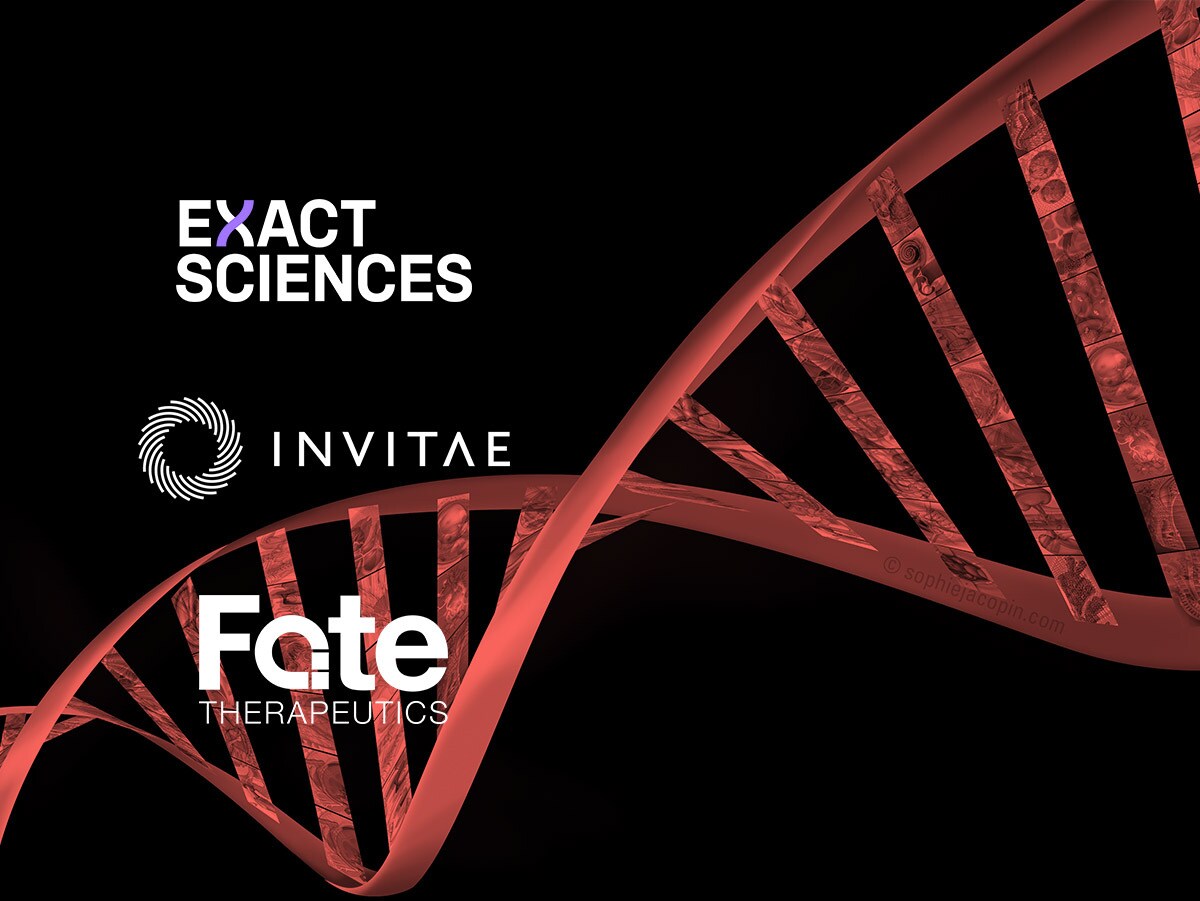The share prices of Invitae, Exact Sciences and Fate Therapeutics have all seen declines of more than 50% in 2022. The companies, all of which have negative cash flows, have been dumped by investors searching for stability amid widespread uncertainty.
Genomics players Invitae [NVTA], Exact Sciences [EXAS] and Fate Therapeutics [FATE] have all crumbled from their pandemic highs. A shift away from riskier high-growth stocks in recent months to safer investments has hurt the niche industry, which is still working out how to generate consistent profits.
Invitae has been the industry’s biggest loser, having declined 83.5% since the beginning of the year. Investors are becoming concerned that it will struggle to raise fresh capital in the coming months. Both Exact Sciences and Fate Therapeutics have faced similar investor concerns in the past year, with Exact Sciences particularly hurt after ending its co-promotional deal for a cancer test with Pfizer [PFE].
Looking at the wider theme, the ARK Genomic Revolution ETF [ARKG], which holds stocks that are developing new genomic technologies, has declined 45.8% year-to-date as investors dump risker high-growth shares held in the fund. Exact Sciences is the fund’s second-largest holding and Fate Therapeutics the ninth.
Invitae faces liquidity concerns which accelerates losses
In the second quarter, Invitae was forced to write off $2.3bn in goodwill, which reflected a dramatic reassessment of the company’s future operational abilities. One of the main reasons for the write-down was the consistent decline of the Invitae share price in recent years. The decline does more than just hurt shareholders’ pockets, it makes it even harder to raise additional capital for the business through issuing new shares.
With $1.47bn in convertible notes and an additional $118m in debt and only $303m in cash, Invitae needs to ensure it has sufficient capital to finance its hefty liabilities. With cash flows not expected to turn positive until at least 2025 and share issuance currently a costly alternative with the share price so low, liquidity has been a real sticking point for shareholders in the last year.
The group, however, has been able to make a few cost cuts to help push operations to be profitable. In the second quarter, the company burnt $147m in cash, which was a $22m decline from the first quarter. However, it will be hard to continue cutting back on costs this year as inflationary pressures continue to rise the cost of basic goods and labour.
Exact Sciences suffers after Pfizer exits deal
The Exact Sciences share price has led the genomics pack so far this year, despite declining 57% since the beginning of January. It was a tough end to 2021 as it was announced that Pfizer was ending its co-promotion deal with Exact Sciences for its colon cancer test, Cologuard. Pfizer helped to drive sales for the screener and Exact Sciences has had to look for an alternative to drive sales in recent months.
Despite this, the group was still able to raise revenue by 20% to $522m in the second quarter. This was led by a strong screening revenue of £354m which was an increase of 34%. The company also anticipates full-year revenue between $1.98bn to $2.02bn. While this is slightly below the previous forecast of $1.98bn to $2.02bn, it is still considerably higher than the $1.77bn seen in 2021’s full-year results.
Earnings losses set to continue for Fate Therapeutics
Fate Therapeutics, which develops cellular immunotherapies for patients with cancer, has sat in the middle of the pack in 2022, having seen its share price fall 61% in the year-to-date. The group saw a net loss of $212m in 2021 on the back of revenues of $55.8m and anticipates that it “will continue to incur significant losses for the foreseeable future”.
With no outline on when cash flow will turn positive, Fate Therapeutics will need to ensure it has enough capital to fund continuing operations. Higher interest rates have made obtaining new financing even more expensive and investors have recognised this and shifted to safer cash-positive companies.
Second-quarter research and development expenditure was $81m which was up from $48m a year before. While some of the growth in expenditure was down to increase investment into research projects, some of the growth was the result of inflationary pressures. There was a $4.9m increase in employee compensation and an $8.6m growth in laboratory material expenditure.
Continue reading for FREE
- Includes free newsletter updates, unsubscribe anytime. Privacy policy





